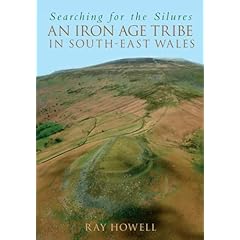
Abstract of Review by Sam Burson
"A HARDY band of Welshmen in red, who took on the might of the Italians 2,000 years ago, could prove inspirational for tomorrow's Welsh Six Nations warriors.
A leading historian has documented the exploits of the ancient Silures tribe, who fought a long campaign against the Romans two millennia ago.
Dr Ray Howell from the University of Wales, Newport, even says our penchant for wearing red may spring from the tribe's favourite battle colour.
Dr Howell, a reader at the university's School of Education, has published an examination of the South-East Wales tribe, who came close to thwarting the Roman domination of southern Britain.
He said, "What emerges is not only a warrior society, but also a sophisticated people who traded widely and made good use of horses and horse-drawn vehicles.
They had war chariots with equestrian equipment decorated with red enamel. For the Silures the colour of war was emphatically red."I'm sure it would be impossible to prove, but it could be that the reason Wales is associated with red now, and why Welsh players will be wearing red when they take to the field in Italy, is to do with the culture of the Silures.
"Certainly one of the things which has struck me is how much they used red in pretty much anything to do with battle."
He believes the Silures tribe were more advanced than most people give them credit for, having waged a ferocious guerrilla campaign against the Romans which lasted far longer than even the famous Boudica-led revolt.
The Iron-Age tribe managed to defeat a whole Roman legion during their bloody campaign.
And even though their attacks from hill forts were eventually subdued after a quarter of a century, Dr Howell believes some of the culture of the tribe, which is likely to have spoken an extremely early form of Welsh, lived on after the Romans left Britain for good.
In his new book, Searching for the Silures, he shows how the tribe was able to rout the Romans for 25 years before the all-conquering legions were able to build their fortress at Isca, now Caerleon."
No comments:
Post a Comment